How to Buy a Suppressor | How To Buy a Silencer
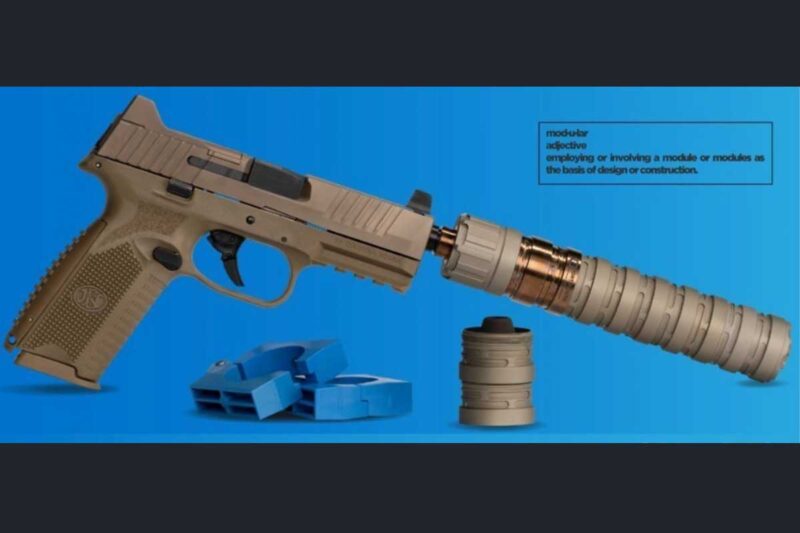
5 Steps to Buy a Suppressor/Silencer
Are you a first-time buyer looking to add a suppressor (“silencer”) to your gun? A suppressor is a great form of hearing protection for shooters who want to reduce the decibels of their firearm’s report, especially when combined with subsonic ammo. Although there has been a huge increase in gun owners’ interest in suppressor ownership over the last several years, especially among hunters, getting a suppressor is not typically a fast process. They are classified as “silencers” and restricted by the Bureau of Alcohol, Tobacco, Firearms, and Explosives (BATFE) under the National Firearms Act (NFA). The process is very similar to getting an SBR (Short-Barrel Rifle). Here are the five steps you need to know about the registration process when you’re planning to buy a suppressor for your gun.
1. Determine If Suppressors Are Legal In Your State
What states can purchase a suppressor?
First, you need to determine if suppressors are legal in your state. This can be done by checking with local law enforcement at the city, county, and state levels. Laws can vary greatly depending on where you live. As of July 2023, they are legal to own in 42 states and are legal to hunt with in 34 states. If they are legal in your state, you should be able to pick up a suppressor for your handgun, rifle, or shotgun. You may be able to purchase a suppressor online with the help of a kiosk located at gun stores that have their SOT (Special Occupational Taxpayer) and deal in NFA items. Purchasing online and using a kiosk helps expedite the process but is not required. You can also buy and start the process in person at a retailer.
2. Register Before Purchasing
What is required to buy a suppressor?
You must be approved for purchase and register your suppressor with the ATF before purchasing it. There are three ways you can register your suppressor. You can register it yourself, form a gun trust and register the suppressor to the trust, or register it as a corporation. Forming a trust is what many legal experts suggest, as it makes it easier to transfer ownership of the suppressor. You will need a background check, FBI FD-258 fingerprint cards, and passport photos regardless if you file as an individual, trust, or corporation, and this also applies to any other RP (responsible person) on your trust. If you put a suppressor on your gun and hand it to a friend at the range, you should always be able to see them if you registered it yourself. Meanwhile, anyone listed as an RP trustee can use the suppressor.
3. Fill Out the ATF’s Forms
Next, you will need to fill out Form 5320.23 and Form 4 for the ATF. Be sure to fill both in duplicate. Your dealer can help you get the right forms and cards. If you are using a kiosk to buy your suppressor, you may be able to simply use your phone to upload the photo.
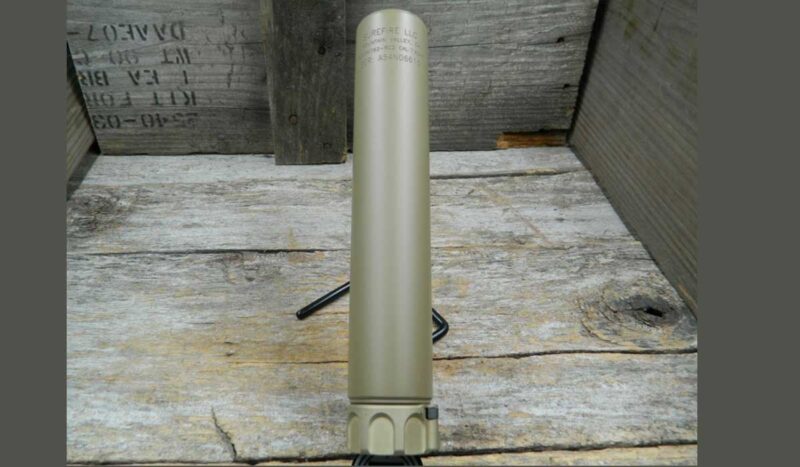
4. Pay the NFA Tax Stamp
How much is a suppressor tax stamp?
Next, you purchase the suppressor and pay $200 for the tax stamp. This goes to the Bureau of ATF National Firearms Act Division. Your dealer may also charge a separate transfer fee for managing the paperwork and transferring the suppressor. This is sometimes more expensive than a simple FFL firearm transfer fee and is determined by the local dealer or gun store.
5. Wait for Approval
How long does buying a suppressor take?
Finally, you have to wait until you have your approval/tax stamp from the ATF. Your gun may look bare without a suppressor, but you cannot legally take the suppressor out of the shop until you get ATF approval. Gun shops with on-premises ranges may let you use it at the range until you are officially approved. Wait times could be up to a year, while an eForm will usually shave some time off of that. Due to backlogs, the sheer volume of applicants, and several other factors, the entire process as of July 2023 is taking 300+ days with paper forms and 230+ days for eForms. Once approved, you will fill out Form 4473 for the transfer, and you are ready to go.
PS: There is a myth circulating that owning NFA items opens you up to inspections or reviews like an FFL/SOT. You are not subject to those and still retain your 4th Amendment rights.
Related Articles: Benefits of Silencers and Type of Handguns to Host Them
Related Articles: Debunking Myths About Silencers and the Best Firearms to Host Them
Related Articles: Visit the SilencerCo Store on GunBroker.com

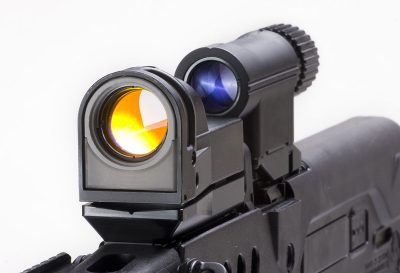
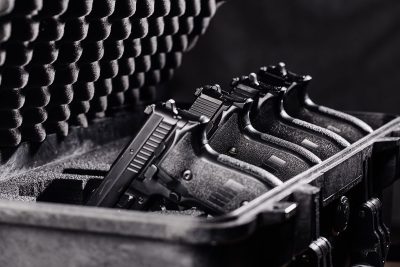
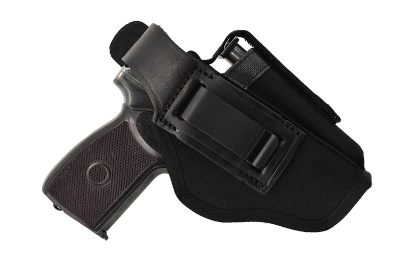
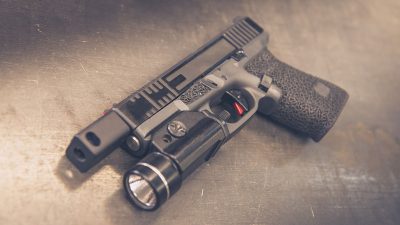

![Rugged Suppressors Alaskan 360 and Alaskan Ti Suppressors [Video]](https://content.gunbroker.com/wp-content/uploads/2023/02/New-Rugged-Suppressors-Alaskan-360-and-Alaskan-Ti-Suppressors-Video-OkS1rZnJ-1280-400x225.jpg)
![Dead Air Silencers Mojave-9 Suppressor [Video]](https://content.gunbroker.com/wp-content/uploads/2023/11/dead-air-Mojave-9-silencer-400x267.jpg)
![What a Combo! Smith & Wesson M&P15 Axe Rifle & Gemtech Abyss 5.56 [Video]](https://content.gunbroker.com/wp-content/uploads/2023/02/What-a-Combo-Smith-Wesson-MP15-Axe-Rifle-Gemtech-Abyss-5.56-Video-jPALd4oJ-1280-400x225.jpg)
![New: Aero Precision Solus Bolt Action Rifle System & Lahar-30 Suppressor [Video]](https://content.gunbroker.com/wp-content/uploads/2023/04/Areo_Solus_w_Lahar-30-1-1200-x-800-400x267.jpg)
![Gunwerks Titanium Suppressors: 6IX, 6IX+ and 8IGHT [Video]](https://content.gunbroker.com/wp-content/uploads/2023/02/New-Gunwerks-Titanium-Suppressors-6IX-6IX-and-8IGHT-Video-GOLnlUNs-1280-400x225.jpg)
